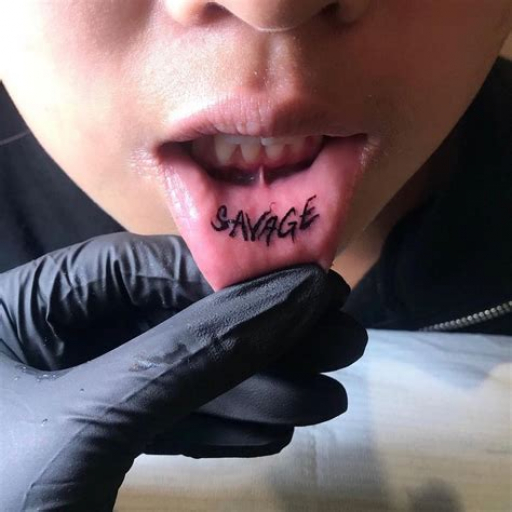Lip tattoos have become increasingly popular in recent years, but their potential risks and drawbacks make it crucial to weigh the pros and cons before making a decision. While lip tattoos can enhance personal style and make a bold statement, they also come with unique challenges that differ from traditional body art.
Health Concerns
Due to the sensitive nature of the lips, lip tattoos carry certain health risks. The thin skin and high concentration of blood vessels in the lips make the area prone to bleeding, swelling, and infection. The risk of scarring and discoloration is also higher than with tattoos on other body parts. Moreover, lip tattoos can interfere with eating, drinking, and kissing, causing discomfort and potential damage.

Long-term health effects of lip tattoos are not fully understood. The constant friction and movement of the lips can cause the tattoo to fade or smudge over time. It is also essential to note that lip tattoos may affect MRI scans, as the ink used can interfere with the magnetic field.
Fading and Distortion
Lip tattoos are more prone to fading and distortion due to their location. The constant exposure to saliva, food, and UV rays can cause the ink to break down and lose its color. The natural exfoliation of the lips also contributes to the fading process, requiring frequent touch-ups to maintain the appearance of the tattoo.
The shape and size of the lips change with age, weight gain or loss, and facial expressions. As a result, lip tattoos may become distorted or stretched, altering their original design. This can lead to an unflattering and undesirable outcome.
Social Stigma
Lip tattoos may come with a degree of social stigma or negative perceptions. In some cultures and workplaces, face tattoos, including lip tattoos, are considered unprofessional or inappropriate. It is important to consider the potential social implications before getting a lip tattoo and be prepared to face any biases or judgment from others.
Alternative Options
If you are hesitant about the risks and drawbacks of lip tattoos but still desire a unique touch to your appearance, there are alternative options available. Temporary lip tattoos offer a non-permanent way to experiment with the look without committing to a permanent procedure. You can also consider using lip makeup or glosses that create the illusion of a tattoo but are easily removable.
Conclusion
Ultimately, the decision of whether or not lip tattoos are a bad idea depends on your individual circumstances and preferences. It is crucial to weigh the potential health risks, fading concerns, social stigmas, and alternative options before making a choice. Thorough research, consultation with a reputable tattoo artist, and careful consideration are essential to ensure you make an informed decision that aligns with your lifestyle and goals.
Remember, tattoos on the lips are a highly visible and permanent form of body art that carries unique challenges and considerations. While lip tattoos can be a personal statement of style, it is imperative to approach them with caution and fully understand the potential implications before taking the plunge.
FAQ
Are lip tattoos more painful than other tattoos?
Yes, lip tattoos are generally more painful due to the sensitive and thin skin on the lips.
Can lip tattoos cause allergic reactions?
Yes, some people may experience allergic reactions to the ink used in lip tattoos, leading to redness, swelling, and itching.
How long do lip tattoos last?
Lip tattoos fade and distort more quickly than tattoos on other body parts due to constant friction and exposure to saliva and food.
Are lip tattoos appropriate for all workplaces?
No, lip tattoos may not be suitable for all workplaces or professions that require a more conservative or professional appearance.
Is there a way to remove lip tattoos?
Yes, laser tattoo removal can be used to fade or remove lip tattoos. However, it is important to note that laser removal can also cause scarring or discoloration on the lips.



